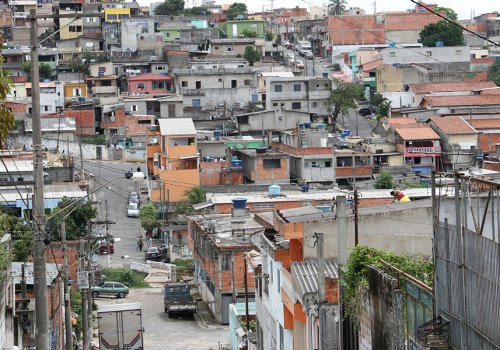Poverty manifests itself in lack of money, hunger, malnutrition, lack of access to education, social discrimination, exclusion and lack of participation in the decision-making process. Ending poverty in all its forms is the first of 17 Sustainable Development Goals (SDGs) of the 2030 Agenda for Sustainable Development.
These days, the richest and poorest Nigerians are separated by the widest gap in history and the astoundingly high levels of poverty are a threat to social cohesion and peaceful co-existence. There is a moral dimension to this because those people whose decisions led to the impoverishment of Nigerian citizens, have not accounted for the ethics of their decisions, and are now enjoying a subsidised life of luxury in the council of states.
Somewhere along the line, government lost its respect for citizen’s rights. Now those currently in office arrogantly display intolerance and lack of compassion for the “undeserving poor”.
There are six reasons why societies are judged by the way they treat their poor. Firstly, society’s moral obligation to care for the vulnerable because treatment of the poor reflects upon societal values and priorities. Secondly, issues of social justice because societies with huge disparities in wealth and opportunity are unjust and never crime-free. Thirdly, economic stability because high levels of poverty usually lead to social unrest. Fourthly, human dignity because treating the poor with dignity and respect is their fundamental human right. Fifthly, the condition of the poor serves as an indicator of broader social issues such as access to education, healthcare and employment.
- Court dissolves 45-year-old marriage over infidelity
- Crucial vitamin can ease symptoms for deadly lung condition — Research
Lastly, there is the matter of leaving a legacy for future generations because poor treatment of the poor is a signal of systemic failure. Undoubtedly a society’s treatment of its poor reflects its ethical standards and commitment to social justice.
In Abuja, the Federal Capital Territory (FCT), Nyesom Wike is just the most recent in a long line of FCT ministers who have tried to rid the nation’s capital of beggars. Wike is doing nothing different from what others tried without success. He dismissed the high levels of unemployment in the nation and economic downturn under the current administration as a cause of increased begging by saying there is nowhere in the world where employment is provided for everybody, and, as if they are responsible for the kidnapping and “one chance” operations which are becoming daily occurrences in FCT, he declared beggars as a “security threat”.
Begging is now part of Nigerian culture. These days, even salaried employees beg for financial gratification for simply doing their job! Street begging is another matter altogether. Neither the FCT minister nor indeed any other top government official seems to care why street beggars keep on pouring into cities. It is idiotic to try and rid a city of beggars simply in order to promote tourism. The idea that they should be sent back to their “home states” is nonsensical. Not only is it unconstitutional because Nigerians are free to live wherever they want to in their country, but more importantly, most beggars are victims of circumstances, including natural disasters, terrorism and bad governance which made them relocate in the first place!
Governance in Nigeria has “progressed” from simply ignoring beggars to now considering them as a nuisance rather than a problem to be solved. Bad governance is indicated by budgets which are moral documents that reveal priorities. In Northern states of Nigeria where the bulk of beggars come from, budgets are disasters for the poor and windfalls for the rich political class and associates.
Governors focus on flyovers and bridges rather than critical development needs such as education, industrialisation and modern agriculture. While they gallivant in private jets and preen themselves in overly expensive SUV vehicles and luxurious government houses, their states’ economies are in shambles and their majorly illiterate populace cannot do even the simplest technical jobs, which is of course why they are renowned for begging and plying their “trade” in more prosperous urban areas.
Our national scorn for the poor is evidenced by the absence of a social safety net, and the fact that a totally unnecessary Ministry of Humanitarian Affairs has only been plagued by scandals while claiming to have handed out billions in palliative cash to unidentified (and unidentifiable) Nigerians.
Lamentably, government has taken the view that hiding poverty in a corner will somehow make the problem go away. Access to food, water and shelter are basic human rights denied many Nigerians. Many are denied access to opportunities for education, healthcare and personal improvement and therefore resort to begging to survive and being socially stigmatised.
Truthfully, being poor does not have to be a symptom of hopelessness. Beggars have a deep desire to create a better life for themselves and their families. They and other indigent poor face stigmatisation and discrimination mainly through no fault of their own. Regardless of the lack of humanity in political leaders, it’s not only our right as citizens to correct this unjust economic system so grossly out of balance; it is indeed our duty to challenge government’s disdain for the poor.

 Join Daily Trust WhatsApp Community For Quick Access To News and Happenings Around You.
Join Daily Trust WhatsApp Community For Quick Access To News and Happenings Around You.